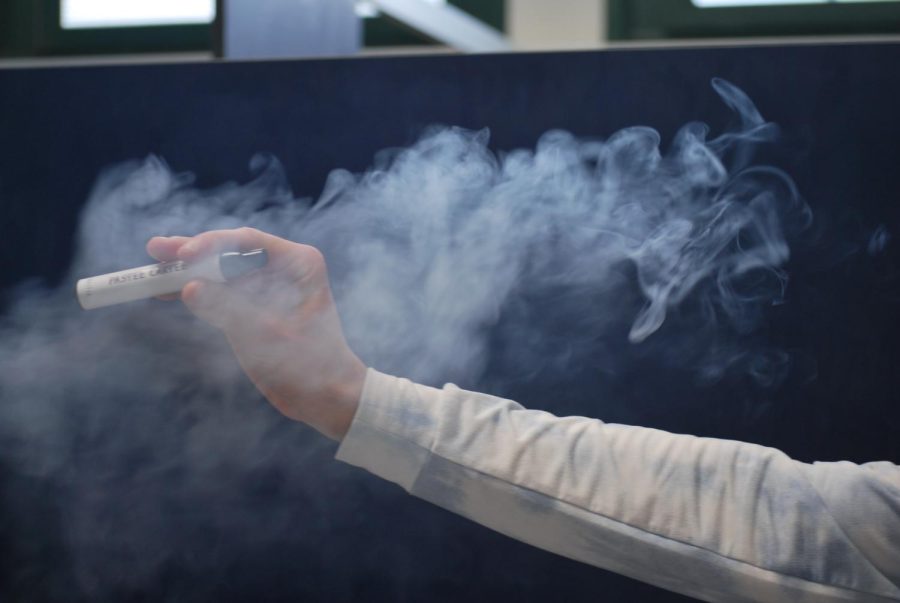Vape detectors added to SC, NC bathrooms
November 9, 2022
The LT administration is installing vape detectors in bathrooms at both NC and SC, alongside this year’s continued focus on attendance and discipline.
“I do believe the detectors will be beneficial to the school,” Assistant Principal Adam Davis said. “Not only is it illegal for anyone under the age of 21 to vape, [but] the health risks associated with vaping are the main concern in getting assistance to students that may already be addicted to vaping.”
Before larger scale installation, the campuses will be starting with a smaller quantity of detectors, Associate Principal Kevin Brown said.
“My understanding is that [the administration is] working with a few companies,” Brown said. “They were loaning them to us on a trial basis: one set we returned already and I’m not sure on the other set.”
When a detector is triggered, the corresponding alarm on the detector dashboard will be silent, Davis said. Instead of a loud noise, a text message notification will be sent to the assistant principals. Additionally, student assistants (or assistant principals) who are close to the alarm at the time of activation will be able to investigate: this response includes a security check.
“[The detectors] are not about ‘getting kids in trouble,’” Davis said. “It is important to get help to students that are vaping.”
Penalties for vaping vary based on the type of vaping instrument that a student is found with. The punishment for possession of a nicotine vape consists of a four-hour Saturday detention, providing a name to the school resource officer, a village citation, and a code of conduct violation for those involved in extracurricular activities. A THC vape (or “cart” as it is sometimes referred to as slang) consequence has some similarities, like the school resource officer and the code of conduct breach, but also includes both an in-school and out-of-school suspension. The trial nature of these detectors mean that, in their current state, will not be an expense to the school.
“It depends on how much [it] would [cost] if we were to go this way and what would we get for spending that money,” Brown said.
If the trial run proves to be effective, the administration would likely invest in more, which would be paid for by the district, Assistant Principal Darrell Mathis said. As of mid-October, detectors were still being configured to the network.
“The trial devices have been received and our IT departments are working currently on configuring the devices with our network and the installations,” Mathis said.
The news of the vape detectors may come as a concern to those students who illegally participate in vaping.
“That’s low-key an invasion of privacy,” a four-year vaper and student who wished to remain anonymous said. “I feel like [people] gotta do what they gotta do to get through the school day. I don’t agree with this: it’s going to get a lot of people in trouble. Even their whole future probably, especially if they got scholarships or what-not.”
Brown also described the need to ensure false accusations are avoided.
“Worse than doing nothing would be getting false positives,” Brown said. “I think we would all be okay with missing a few actual vapers to avoid falsely accusing someone who literally went to the bathroom to blow their nose.”
Brown made it clear that the emphasis for the school year remains on attendance before other aspects.
“It’s a pilot,” Brown said. “We may well get to a place where we make some sort of recommendation to purchase equipment long term and look at how we want to communicate that to students and staff, but honestly this has not been a heated topic of conversation for us nor would I put it on a level of priority with [attendance and discipline].”
As of Nov. 3, the trial vape detectors have been installed in bathrooms at both NC and SC.



















![Movie poster for '[Rec]" (2007).](https://www.lionnewspaper.com/wp-content/uploads/2023/04/rec-640x900.jpg)



